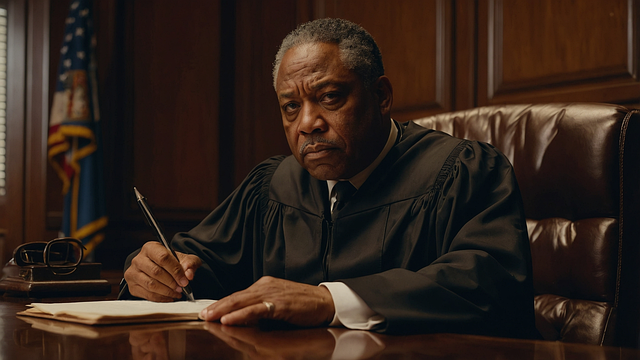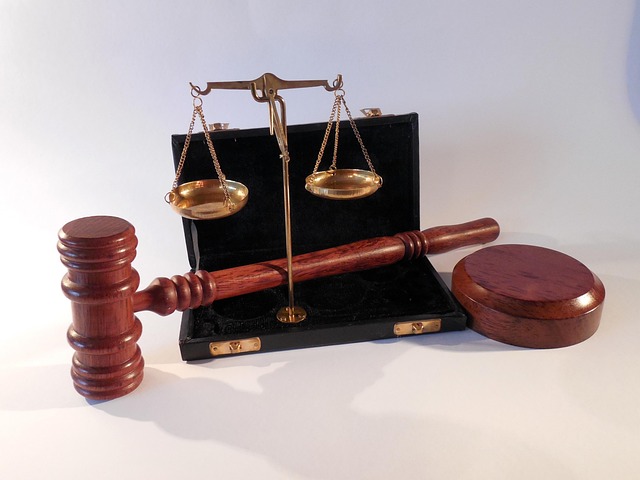Prosecutors employ strategic techniques in the plea bargaining process to address finance crime cases efficiently. They balance guilt acknowledgment with leniency, leveraging evidence, legal knowledge, and communication to persuade defendants. These strategies aim to uncover insights, secure cooperation, streamline judicial procedures, and maintain justice, disrupting criminal networks and deterring future malfeasance.
“The financial crime landscape is complex, and the plea bargaining process plays a pivotal role in its navigation. This article delves into the intricate world of prosecutor strategies employed during plea negotiations, shedding light on their tactics, motivations, and potential pitfalls. From understanding the dynamics of plea bargaining to exploring successful case studies, we explore how prosecutors balance justice with practical considerations. By analyzing these key elements, we aim to provide valuable insights for both legal professionals and those navigating financial crime investigations.”
- Understanding Plea Bargaining in Finance Crime Cases
- Prosecutor's Role: Negotiation Tactics and Strategies
- Motivations Behind Plea Deals: A Balancing Act
- Uncovering Potential Red Flags in Plea Bargaining
- Case Studies: Successful Prosecution Strategies
Understanding Plea Bargaining in Finance Crime Cases

Plea bargaining is a common strategy in finance crime cases, where prosecutors and defense lawyers negotiate a plea agreement. This process allows for a more efficient resolution compared to lengthy jury trials. The prosecutor’s strategies in this phase are multi-faceted. They aim to secure a confession from the accused, gather evidence, and determine the severity of the crime. By offering a plea bargain, often involving reduced charges or a lighter sentence, prosecutors encourage cooperation from individuals who may possess valuable insights into complex financial schemes.
This tactic can be beneficial for both parties. For his clients, it provides an opportunity to avoid the rigors of a trial and potentially receive more favorable outcomes. In turn, prosecutors gain access to information that might lead to further investigations or charges against other parties involved in the respective business dealings. This strategy also ensures a quicker resolution, which is crucial in cases where financial trails can be intricate and difficult to trace.
Prosecutor's Role: Negotiation Tactics and Strategies

In finance crime probes, prosecutors play a pivotal role in the plea bargaining process. They act as key negotiators between the accused and the court, aiming to reach agreements that ensure justice is served while also considering the practical implications of each case. Prosecutor strategies in this context involve a delicate balance between achieving guilty pleas for financial crimes and securing complete dismissal of all charges where appropriate. They leverage evidence, legal knowledge, and communication skills to guide defendants towards acknowledging their guilt and accepting plea deals. These deals often include reduced sentences or alternative forms of resolution, such as community service or restitution, tailored to the specific circumstances of each case.
Effective prosecutor strategies in plea bargaining require a thorough understanding of all stages of the investigative and enforcement process. By carefully evaluating the strength of the prosecution’s case, potential defenses, and the defendant’s willingness to cooperate, prosecutors can craft agreements that lead to winning challenging defense verdicts. This approach not only streamlines the judicial process but also fosters a more efficient system for addressing financial crimes, ensuring that resources are allocated effectively while maintaining the integrity of the legal framework.
Motivations Behind Plea Deals: A Balancing Act

The motivations behind plea deals in finance crime probes are complex, involving a delicate balancing act between justice and efficiency. Prosecutors employ various strategies in the plea bargaining process to achieve extraordinary results in cases involving white collar and economic crimes. While ensuring that culprits face consequences for their actions, these strategies also aim to conserve resources and streamline the legal process.
One key aspect is offering reduced charges or sentences in exchange for a defendant’s cooperation. This can involve providing substantial assistance in uncovering co-conspirators or significant financial transactions. Such deals not only help secure convictions but also offer insights that may lead to further investigations, thereby strengthening the overall criminal justice system and its ability to tackle general criminal defense issues effectively.
Uncovering Potential Red Flags in Plea Bargaining

Uncovering potential red flags in plea bargaining is a critical aspect of finance crime probes. Prosecutors employ various strategies during this process to secure favorable outcomes for both corporate and individual clients, leveraging an unprecedented track record of winning challenging defense verdicts. By meticulously examining financial records, witness testimonies, and legal precedents, prosecutors identify anomalies that may indicate fraudulent activities or attempts to obstruct justice.
These strategies include thorough fact-finding, where every detail is scrutinized to build a robust case. They also involve negotiating with defenders, often uncovering additional evidence through plea agreements. The key lies in recognizing subtle signs of guilt or manipulation, ensuring the integrity of the justice system while securing just outcomes for all parties involved.
Case Studies: Successful Prosecution Strategies

In the arena of finance crime probes, successful prosecution strategies are pivotal to upholding justice and deterring future malfeasance. Case studies reveal that proactive approaches, such as leveraging plea bargaining, play a significant role in achieving convictions. Prosecutor strategies in the plea bargaining process involve offering reduced charges or sentence concessions to defendants who cooperate with investigations, providing valuable insights or evidence against fellow criminals or organizations.
This strategic approach not only expedites the legal process but also strengthens cases by securing candid confessions and tangible proof. The effectiveness of these prosecutor strategies is evident in their ability to disrupt criminal networks, exposing corruption that permeates general criminal defense, philanthropic, and political communities. Moreover, successful prosecutions send a resounding message to respective businesses, underscoring the severe consequences of financial crimes and incentivizing ethical conduct and transparency.
The exploration of plea bargaining in finance crime cases reveals a complex interplay between justice and negotiation. Understanding the prosecutor’s role, motivations behind deals, and potential red flags is crucial for navigating this aspect of the legal process. By unravelling these factors through case studies, we gain valuable insights into effective prosecution strategies. These findings empower legal professionals to make informed decisions, ensuring fairness and integrity within the plea bargaining process, and ultimately contributing to robust financial crime investigations.






